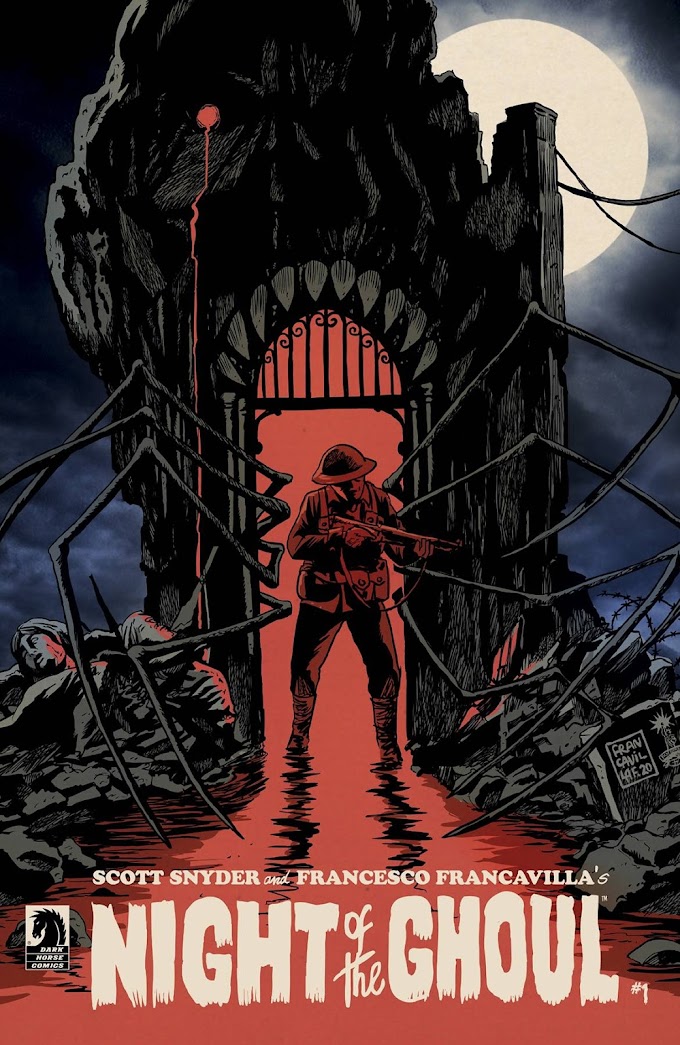 Written by Mark Millar
Written by Mark MillarIllustrated by Steve McNiven and Dexter Vines
Marvel
[Today for no particular reason I think I'll repost some of my Civil War reviews.]
What happens when Marvel decides the best way to be culturally relevant is to ignore forty five years of suspension of disbelief and bring their heroes jarringly into a reality that doesn't make sense precisely because the whole idea of superheroes requires suspension of some known laws of humanity?
Well, you call it Civil War and put it in the hands of the man that used The Ultimates to parody the heroes he's been given to play with here in the first place.
I like Millar's writing a lot, but I don't think he's the best person to try and deal with the large number of heroes required in a crossover of this nature, and it showed in the action scenes, where we end up seeing Spidey, Cap, the FF, etc. repeatedly. Balancing all the actors in a large crossover is a tricky business, and Millar trips himself up a bit by trying too hard to show how this affects Marvel's "big guns."
The basic plot is that in a really stupid accident, the New Warriors, who are a reality TV show by this point, blow up a school and kill children. Now, we are supposed to believe--and this is the hard part for me--that either a) this has never, ever happened before in a world where for at least about seven to ten years or so of a constantly floating timeline, there have been a huge number of heroes and villains or b) that, without prior instances to back it up, this is the straw that breaks the camel's back. I find either idea to be, frankly, stupid.
There are some things that Buisek or David or Bendis would have used to set this up, but since it's Millar and he is either not as well versed in Marvel history or doesn't care to try, we get a law requiring superheroes to register or face being hunted down by S.H.I.E.L.D. Things fall apart as the heroes split over which side they should be on, and the story rolls on from there.
Once you get past the problems inherent in the set-up, the story moves along a lot better. The sides split down the middle, roughly, with the out-on-the-edge-to-start-with heroes going anti-registration, with one notable exception--Spider-Man. We then get a lot of fighting and some angsting by both sides about how horrible this all is, which is handled surprisingly well by Millar. The plot thickens as some heroes for various reasons start changing sides, and plans are made on how to "win" the war. Both sides get increasingly violent and awful, as we learn of plans for clones, prisons, and sanctioning of known killers in order to win the day. In the end, only one side can win, and the more I think about it, the more logical the ending is, if a bit anti-climatic upon first reading.
All in all, it's a great story that will lead to even better followups in the hands of Marvel's new "House of Ideas"--Bendis, Millar, David, JMS, Jenkins, Brubacker, Quesada, and a few others who basically write most of the books at this point. My main hope is that someone picks up on the idea that the one side really never had a clear goal of what to do if they won and that the other side seems to have forgotten the reason why they all became heroes in the first place, because those are the two things I think are the largest--and most full of potential--unanswered questions left in the wake of what I have to say was a good story.
My only problem is that, unlike most stories, there's no way to retreat from it gracefully. If they have no plans to do so, then fine, but they also need to understand that if they do the old "It was Loki, it was a Skrull plot, it can be fixed by a Charles Xavier mindwipe, etc." trick after a few years or slagging sales, all of this is going to look like so much crap.
Much as I'll miss my old Marvel stories done in the old way, I'd rather see them keep going than try to go back now. And in fact, the more I think about it, the more I think--rightly or wrongly--that Marvel's plan was to break out of the same stories with this arc, and if that was the case, bravo to them, and good luck. It may be the most ambitious thing they've done since some guy named Stan Lee said, "Let's make a teenage superhero with all the same problems of a regular teenager."
[Editor's note: Looking at this again, there's not much I'd say differently. Marvel did get to tell good stories from it, which is a major plus for a crossover. But again--that reason for the registration just stinks so bad. It's like picking at the "does the Hulk kill people?" scar. Best to leave those concepts alone. --Rob]





![Sweat and Soap [Ase to Sekken] by Kintetsu Yamada](https://blogger.googleusercontent.com/img/b/R29vZ2xl/AVvXsEgMnQltxjWqGS1_duhCp9Er1a0NbALuSFrqvjaV4_PjN_w67xCGghYt-l0qKyqTH7Ei7gbq_mxVq8aPAuOiyaArwAMLJWhpGmOYaARUBnwvjmv2-ZIe20m_zR5CvKnPdI6US_AuOnmi3gSX/w680/57525895-BA7E-4EF8-9FE4-89F9C164E1A4.jpeg)

